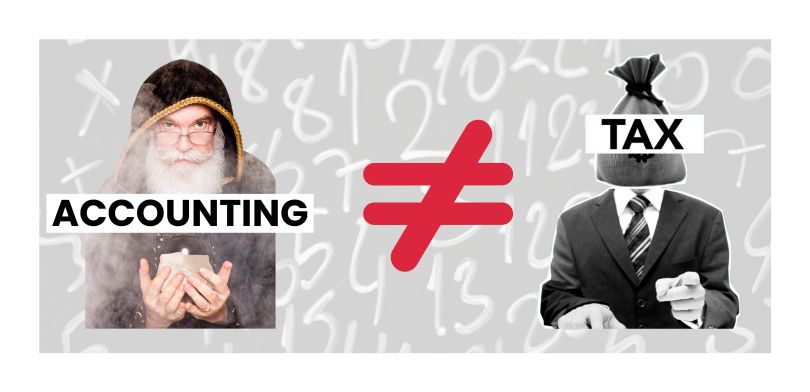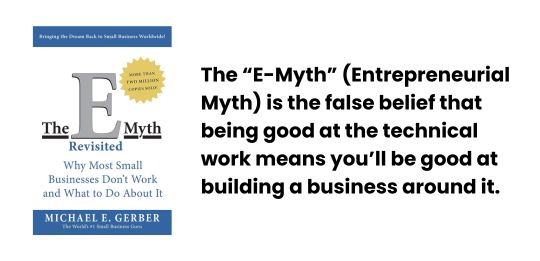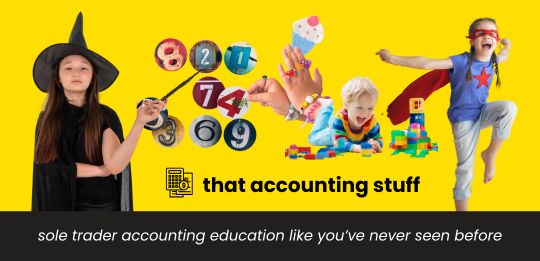Accounting is Not Tax!

Why Doing Your Accounting is So Much More (and Better) Than Just Doing Your Tax Returns
If you’re like most sole traders, when you hear “accounting,” your mind probably flashes to that dreaded annual income tax return.
Those fugly forms designed by a tax bureaucrat who’s surely a closeted sadist, daydreaming about single-handedly destroying the human race with indecipherable paperwork.
(What the hell is ‘Low-value pool deductions’ anyway?? My kiddos’ splash pool? My below-ground pool that’s nowhere near as expensive as the neighbour’s infinity pool?)
The stress of getting it lodged in time — probably because you avoided doing your accounting all year long and, Holy Thieving Time Goblins, Batman! It’s July already!
And the looming dread of that ‘love letter’ from the tax man that’s going to decimate your bank accounts if you haven’t been setting aside money each month to cover your tax bill.
If this is where your mind goes, I’ve got a surprise for you:
Accounting is not tax.

Accounting is Not Tax
Tax is just a form you fill out to let the grubby-ment know how much of your hard-earned money it can get its grubby mitts on this year.
Yes, you have to do some accounting in order to be able to fill out that tax return. But they are not the same thing. Not even close.
Think of tax returns as the invoice you issue a client or customer. It has to be done, but beyond perhaps helping the client get a tax deduction, is it of any real use? If you’re audited by the ATO, sure, but of use to you, in running your business? Not really — it’s for someone else’s benefit, not yours.
Accounting on the other hand, is more like being your business' gym buddy.
It’s the consistent check-ins, the encouraging nudges, and the sweaty accountability that keeps your business from turning into a wheezy couch potato.
It builds financial strength, stretches your problem-solving muscles, and helps you lift heavier decisions without pulling a mental hamstring.
It’s not just for when things are going wrong — it’s how you keep things going right.

Why Doing Your Accounting Is a Game-Changer
When you do your accounting yourself, you stop flying blind in business. You get to:
- Feel the pulse of your business in real time. You’ll know exactly how much money is coming in, where it’s going, and how much is left over for you — no surprises, no “where the hell did all my money go?”
- Make smarter decisions. Want to hire help, upgrade your tools, sign up for a course, or finally take that guilt-free week off? Your numbers will tell you whether it’s a good idea — or a fast track to eating two-minute noodles again.
- Dodge cash flow chaos. No more crossing your fingers at the checkout or playing bill roulette. Your accounting gives you early warning signs, like a dashboard light blinking before the engine explodes.
- Spot trouble early. Expenses creeping up behind your back? Software subscriptions breeding like rabbits? Your numbers show you what’s going sideways before it becomes a full-blown financial faceplant.
- Save time and stress at tax time. When your books are sorted, tax is just ticking boxes — not crying into your spreadsheets. It’s the difference between calmly brewing a cuppa and frantically hunting receipts while your tax agent sighs loudly on Zoom.

DIY or Outsource?
Should you DIY this stuff, or leave it to the pros?
There are pros and cons to each path. To maximise the pros and minimise the cons, I recommend a middle-of-the-road approach, where you do the day-to-day basic bookkeeping – after some good quality training and practice – then use the pros for oversight, and for their more advanced Mad Skillz.
Accountants, and even some bookkeepers, can do heaps more for you and your business beyond doing your bookkeeping and filling out those tax forms. (Who knew?)
Here’s what they can do for your business once the bookkeeping and tax returns are done:

🧾 Tax
- Tax planning – Strategically structuring your income, expenses, and timing so you don’t hand over more to the ATO than necessary.
🧮 Virtual CFO (Chief Financial Officer)
This is like having a finance boss in your back pocket — without hiring a full-time employee. They:
- Monitor your business performance regularly
- Help you set financial goals and stick to them
- Run reports and interpret your numbers for decision-making
- Spot trends before they become problems (e.g. declining client retention or over-reliance on one income stream)
🧱 Structuring Advice
- Should you stay a sole trader or move to a company or trust setup?
- They weigh up risk, liability, admin cost, and tax implications — so you don’t get stung down the line.
- It’s actually a smart idea to talk to an accountant about what legal structure you should start your business with, as it can sometimes be difficult to switch from sole trader to another structure.
📊 Benchmarking
- Comparing your numbers to industry averages.
- Great if you’re wondering things like “Am I charging enough?” or “Why is my rent eating so much of my income?”
🧩 Succession or Exit Planning
- If you ever want to sell your biz, semi-retire, or just stop one day — accountants can help you plan how to do that in a way that’s financially sound.
Of course they can do your day-to-day bookkeeping too — but if you're not registered for GST and run a pretty simple sole trader business, that’s kind of like hiring a private chef to make you a toasted cheese sandwich. Handy? Sure. Necessary? Probably not.
So don’t waste your accountant’s time — and your money — on basic bookkeeping you can do yourself. Get some good training so you can do it right — and not create a mess for whoever you outsource it to in future! — and use your accountant for oversight and for their superpowers that can help make your business next-level.
But-But-But
If the little voice in your head just went, “I know I should do my accounting, and I want to, but…”

“I don’t have time to do my accounting.”
Totally get it. Running a business solo means wearing all the hats — manager, marketer, tech support, admin, emotional support human, snack provider… It’s a lot.
But here’s the thing: not doing your accounting is quietly stealing more of your time than you realise. Lost receipts. Mystery transactions. Tax-time panic. That sinking “Where the hell did all my money go?” feeling. It’s like ignoring a messy corner of your house until it evolves into a feral Stuff Monster that eats the entire room and you can’t even get in the door.
Doing your books regularly is like tidying up for 15 minutes a day. It feels annoying when you’re tired and just want snacks and Netflix. And skipping it once or twice? No big deal.
Until you wake up one day and it’s a year – or nine, like it was for me – later and the Stuff Monster has claimed squatters’ rights and is threatening to take you to small claims court.
“It's too complicated; I don’t understand it.”
If your brain tends more right than left, accounting can feel like trying to assemble IKEA furniture with no instructions and three extra screws.
But if you have a simple sole trader business, and aren’t registered for GST, it’s actually not that complicated.
It’s just that nobody ever bothered to explain it to you. Not your parents. Not your professional qualification school. Not your accountant — or they didn’t explain it in a way you could understand — those accountants do be talking to clients as if the clients are accounting graduates…
I’m happy to say I’m not one of those accountants. When I was in Planet Office sorting out the accounting messes of large corporations, one of my co-workers from outside the Finance Department once said to me, “You’re the only one from Finance we want to talk to — because you’re the only one we can understand!”
And I’d be more than happy to explain this stuff to you in plain English.
“Accounting is boring. I’d rather work on my clients than my books.”
Well, of course you would! You’re not crazy. Who of us wouldn’t rather be doing literally anything other than our accounting?
Even I can name at least 50 things I’d rather be doing than my accounting – and I’m an accountant. In fact, I once spent nine years doing the 50 other things instead of my accounting. Guess where that got me? Nine years behind on lodging my tax returns, and a Please Explain letter from the ATO when they finally noticed. It was a three month long, almost full-time job to sort that mess out — and that was with guidance from a registered tax agent. Not doing that again…
“I Just Want to Help People — I Don’t Care About All That Money Stuff”
I get it. You didn’t start your business because you’re a greedy capitalist pig — you started it to help people and make a positive difference in the world.
But here’s the thing: when your finances are messy or you’re constantly stressed about money, it creates an energetic weight that’s hard to shake. That kind of energy ripples out and your clients can feel it, even if they can’t name it — and it could limit your business success.
Getting on top of your accounting isn’t about becoming obsessed with money; it’s about clearing that energetic clutter so you can show up fully and confidently. When your financial life is organised and calm, you free up your energy to focus on what really matters — service. And that lets you help people more, and help more people.
Wipe Yer But

Here's the thing: Did you know most small businesses fail? And the reason they fail, according to Michael E. Gerber in his legendary business book, The E-Myth Revisited, is because most small business owners are technicians, who are great at their craft but not trained in running a business.
The “E-Myth” (Entrepreneurial Myth) is the false belief that being good at the technical work means you’ll be good at building a business around it.
While the reality is, there are five aspects of business — collectively called working on your business (while the technician part is called working in your business) — that you need to do in addition to your craft, to have a successful business:
- Leadership / Vision (Entrepreneur role)
Setting the direction of the business — where it's going, why it exists, and what kind of business you actually want to build. It's the big-picture thinking most sole traders are too busy to do. - Management (Manager role)
Creating systems, processes, and routines to make the business run smoothly — so it’s not chaos every time you get busy, hire someone, or take a day off. - Marketing
Understanding who your ideal client is, how to attract them, and how to keep them coming back. This includes branding, messaging, and communication — not just ads and promos. - Sales
Turning interest into bookings. This is about how you talk about your services, build trust, and guide clients to say yes (without feeling icky about it).
And, yep, you guessed it:
5. Finance / Money Management
Knowing your numbers so you can make decisions that aren’t just based on vibes. This includes pricing, profit, budgeting, and yes — accounting.
Neglecting your accounting is like ignoring the weird rattle in your car. It’s fine… until it’s not. And then you’re stranded on the side of the road, Googling “why did my dashboard just light up like a Christmas tree?”
Remember, most small businesses fail because they don’t pay attention to this stuff. And having your business fail? I don’t love that for you.
Fear of Getting It Wrong
“I don’t want to make mistakes and get in trouble.”
That’s totally understandable when you don’t know how to do something.

That’s why I recommend:
- Getting some training so you know the basics. Accountants and bookkeepers all over the country are moaning loudly about the mess they have to clean up because a client who didn’t know what they were doing tried to DIY their accounting. And their clients are moaning even more loudly at the small fortune they’re being charged to have that mess cleaned up.
- Having a bit of professional oversight. Get a pro to give your books a quick check every quarter if you’re lodging a BAS return, once or twice a year if not.
- Leaving the more complicated stuff to those who do accounting for a living. Unless you’re Matt Damon in Good Will Hunting and can get an accounting or tax degree from a library, let those who already have one do the heavy lifting on the advanced finance stuff. Better to spend your time and energy on finding a great finance pro — because, as with the folks in your profession, the quality ranges from terrific to terrible.
Doing Your Accounting Doesn't Just Help You
When you know your numbers, you’re not just helping yourself — you’re helping your entire industry.
Because when more sole traders start tracking their income, expenses, and profits properly, the whole profession gets a clearer picture of what’s actually going on — and that data can become a game-changer.
Here’s how that collective data can fuel real change:
- Create realistic industry benchmarks
So you’re not guessing whether you’re “doing okay” — you can compare your business to similar ones (part-time vs full-time, urban vs rural, solo vs sub-contractor) and get real insights without the shame spiral. - Push for better support and policy
Whether it’s dealing with government departments, funding bodies, insurers, or small business programs — real numbers equal real advocacy power. Data = receipts. - Develop useful resources
If patterns show up (like lots of sole traders struggling with pricing or overspending on admin tools), peak bodies, networks or educators can create better templates, training, and resources that hit the mark. - Debunk the “you can’t make a living doing this” myth
Income data from real businesses (not some outdated textbook model) helps prove that yes — this work is viable, valuable, and deserves recognition. That attracts better clients and better policy. - Build a stronger, more sustainable community
When people stop struggling alone and start sharing accurate data, the whole landscape improves. More support. More clarity. More confidence.
You’re not just a business owner — you’re part of a profession.
Strong Numbers = Stronger Industry
When you have a good grip on your numbers, you give your association the power to see the whole picture: what’s working, what’s not, and what support its industry really needs.
One sole trader professional doing their accounting might not seem like much. But hundreds of thousands of them? That’s powerful.

Check In with Your Business Like You Would with Someone You Care About
You wouldn’t ghost your bestie, your partner or your kids for a year and expect things to feel great next time you talk. Same goes for your business. Accounting is that regular check-in that keeps the relationship healthy, honest, and thriving.
Doing your own accounting isn’t about geeking out on numbers. It’s about taking control, building confidence, and setting your business up for long-term health and success.
If you’re ready to treat your finances as well as you treat your clients, I invite you to check out my accounting courses designed specifically with sole traders who suck at the accounting stuff in mind. They’re quick. They’re easy. They’re holistically designed, and ADHD-friendly. And they’re fun, with learning techniques you’d never expect to find in an accounting course – like fridge magnets, memes, singing, rapping, glitter pens, and Harry Potter costumes.
Because who said accounting courses have to be a snorefest? Not me!

About the Author

Anna Mitchell is a degree-qualified accountant — who was also a massage therapist for a few years, working for corporate wellness agencies on an ABN — and avoiding her accounting like massage clients avoid doing the stretches you recommended.
All that sticking her head in the sand got her was nine years behind on her tax returns. Nine. Years. If an accountant can mess up her accounting that bad, maybe you’re not such a loser after all.
After untangling that mess in 2019, she built herself a system to make sure it never happened again. That turned into That Accounting Stuff — online courses for Aussie sole traders who’d rather eat a book than do their books.
Now she helps people like you go from Accounting Zero to Accounting Hero — so you can ditch the tax-time panic, stop those nasty cashflow-destroying surprises, and finally feel like a ‘proper’ business owner who knows their key numbers (and is way more likely to succeed).
What's with the 1/100: Teaching in the photo caption? It's a blog adventure! Sign up for the Business Bites newsletter (bottom of the Home page) to find out more!
